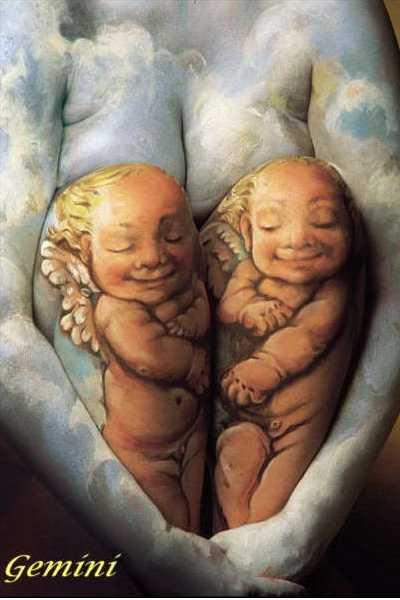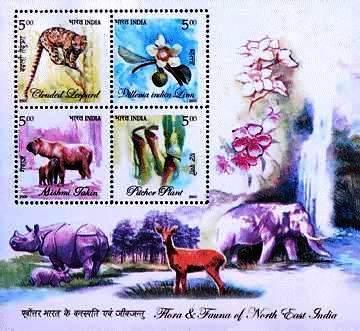This is an article I wrote, which was published in
www.sulekha.com in December 2004. Although written four years back, it brings fond memories to my mind.
Read it here....
It was New Year's Day. The rain god had come to Delhi to offer his blessings quite early in the year. It had been raining incessantly from the previous night -- quite an unusual happening for the Capital's winters. This sudden and unwelcome rain had spoilt the mood of many a New Year reveler, who had grand plans to usher in the New Year, as I later learnt.
It was my second winter in Delhi and I was surprised to see the dawn of the New Year without the dense fog that had accompanied it the previous year. I also realized that the New Year air was not so cold and inimical as last year. I faced a lot of hardships during my first winter in Delhi, since I hailed from a coastal city in Southern India where the warm ocean currents of the Bay of Bengal would shield the city against the vagaries of the cold weather. But my stay in Delhi had given me an opportunity to experience four distinct seasons; something which I had read only in my Geography textbooks.
Most people begin their New Year with a worship of the Almighty. Though not a very religious person, I believed that there existed a supreme power, over the control and imagination of all human beings, which held the world, its humanity and all its diversities together.
“Let us go and worship Lord Subrahmanya tomorrow,” suggested two of my South Indian friends on New Year's Eve. I readily agreed, since I had to get a number of wishes granted by Him.
By the time we reached the temple, the rain had stopped. We bought a basket of offerings and entered the temple.
We then made our offerings to Lord Ganesh, the elephant-faced God and the elder brother of Lord Subrahmanya. Legend has it that, on a tiff with his elder brother over a fruit, Lord Subrahmanya unmindful of his parents' requests went and stood on a hill with only his loincloth. Since then it was a custom to build His temples in hilly areas. Even this temple was built over a small hillock overlooking an arterial road in South Delhi.
We made our way up the hillock to the main temple, which housed the sanctum sanctorum. When we reached this place, the abhishekham or holy bath was being performed to the deity and it was covered from public view with curtains. It was at such places of worship that people stood united, shedding all their differences of caste, creed and status. There were cell phone-toting business executives, daily wage labourers, college students, senior citizens and children -- all waiting to get a glimpse of the Almighty.
It takes anywhere between thirty to forty minutes for the curtains to be opened for public view after the holy bath and decoration of the deity.
“Amma,” screamed a child repeatedly, who was with his father and wanted to go to his mother who was standing on the other side of the queue.
“Why doesn't the child's father give him a tight slap and make his mouth shut?” I thought, the intolerant devil in me having been awakened.
The next moment I realized how hypocritical I was. As a child I had never enjoyed worshipping God and would look for the first opportunity to make my parents leave the temple. I understood that my metamorphosis was complete, from an innocent child unaware of the world's vices to an adult whose mind was full of hatred, deceit and disbelief.
By then the abhishekham was over and the curtain was lifted. “Haro Hara!” roared the crowd in unison in His praise. The devotees jostled against each other to get a glimpse of the God. The priest came and distributed the sacred ash after which the crowd started dispersing slowly.
When we came out of the temple, we realized that we had missed our breakfast. But then, there was still time left for lunch.
“Let us go to the nearby South Indian restaurant for lunch,” I suggested. My friend nodded in agreement.
It was one of those restaurants in South Delhi run by a South Indian association. It served rice and delicacies made of rice. The restaurant was frequented by South Indians all over Delhi and also by North Indians who liked to have their favourite 'masala dosa'.
“It will take another half-an-hour to serve the South Indian thali,” said the bearer after checking our order with the kitchen.
“We are prepared to wait,” we said almost in chorus.
This restaurant and many other South Indian restaurants charged a premium for their dishes, but still managed to have a thriving business.
While we were waiting for our meal, we were loudly discussing our courses, professors and classmates – a habit we had developed over our one-and-a-half-year stay in Delhi, which was also encouraged by the fact that very few people around us would understand what we were saying. We then started looking at the menu card to order soup, when a voice asked us from near our table, “Where do you all come from?” in our mother tongue.
I looked up and found an old man standing near our table and looking us in a quizzical manner. The old man was decently dressed although he had two days' stubble left on his unshaven face.
“We are all from Chennai,” I said.
“Even I am from South India,” said the old man. “But I have been living in Delhi for the past thirty-five years,” he added.
From the old man's diction it was evident that he had learnt Tamil by experience and that it was not his mother tongue.
“Can you guess my age?” asked the old man wanting to continue the conversation.
From his question and from his looks I realized that he was quite an old man. “Eighty,” I said.
The old man nodded his head in a disapproving manner.
“Seventy-five,” said my friend.
“No,” said the old man.
“Seventy,” was the next guess.
“No! None of you guessed my age right,” said the man.
“I am over eighty. Eighty-six to be precise,” he said breaking the suspense.
I was surprised to see that the man was quite healthy for his age.
“How far is Chennai from here?” asked the old man changing the topic.
Though I was not really keen to answer him, I did not want to spoil the New Year mood by annoying an elderly person.
“Two thousand one hundred kilometres away,” I said.
“How much is that in miles?” he asked us again.
We started doing a quick calculation. Even though we were all engineering graduates, we were never comfortable with this system of measurement.
“Approximately one thousand five hundred miles,” replied my friend breaking the silence.
“Oh! That's quite far,” he said. We were happy that we had given him a satisfactory answer.
“How much does a train ticket to Chennai cost?” he asked. I couldn't figure out why he wanted to know all this.
“Four hundred and fifty rupees,” was the prompt reply from the friend who had till now preferred to stay away from the conversation.
“Is it the cost of a first class ticket?” he asked.
“No! It is the second class fare,” replied my friend.
“Oh my! Expenses have skyrocketed,” remarked the old man.
We started talking among ourselves ignoring the old man in our vicinity.
“Do you know, I can speak six languages?” interrupted the old man.
“Six languages!” I exclaimed. “How did you manage to learn six languages?” I asked, taken by surprise.
“Oh! That was when I was a mariner in the Royal Navy in the 40s,” said the old man casually.
Suddenly the old man had caught my attention. I was thrilled to be speaking to an octogenarian soldier.
“I have taken part in the 1941 war,” said the man referring to World War II.
Just then our meal arrived and we felt distinctly uncomfortable having a stranger watching us as we ate.
“Why don't you join us for lunch?” my friends invited the old man.
“Yes! Please join us.” I repeated
“No! Thanks,” said the old man. “I have just had coffee and am expecting my son any moment to come and pick me up.”
So saying the man turned to the restaurant cashier whose counter was just next to our table. We started attacking our meal, as all of us were quite hungry. Just then the old man returned.
“I have served in the Andaman Islands for three and a half years,” he said.
“I have also travelled to Singapore, Java, Malaya and Penang,” he completed in a single breath without waiting for a reply.
We were quite embarrassed to have a stranger, that too an old man standing and watching while we were eating, but none of us had the impudence to ask the old man to go away, lest a soldier's self-respect be hurt.
I decided that if talking to us made the old man happy, then I should not deny his happiness, at least on New Year's Day. I made up my mind to carry the conversation forward even though it was at the cost of my meal.
“You must have seen quite a few historical figures during your service as a soldier,” I observed.
“Yes! Of course,” said the old man, happy that someone was talking to him properly. “Do you know Subhash Chandra Bose?” he asked me.
“Who doesn't know Netaji?” I asked him back.
“I have spoken to him on many occasions and he was a good friend of mine,” the man said , his face beaming with pride.
“How much does the meal cost?” asked the old man pointing to the meal that we were having.
“Rupees thirty five,” I said, wondering whether the old man wanted us to buy him a meal.
“Expenses have gone up like anything,” he observed again. “How are the expenses like in your place?” he asked us.
“Oh! Chennai is quite cheap when compared to Delhi,” said my friend between mouthfuls.
“Can I take this cup of curd?” asked the old man.
This sudden question shook all of us. We would have been happy to buy him a full meal. But hiding his shock, one of my friends said, “Yes! Please take it,” with a made-up smiling face.
The man had the cup of curd and asked us to pass on the appalam. My friend obeyed him silently. While munching the fried snack, the old man commented, “In my time, appalams used to be quite big, nowadays they appear quite small.”
“I have also met Indira in South Block,” said the man, exhibiting his knack for changing the topic of conversation to a totally unrelated subject.
I realized that he was referring to Mrs. Indira Gandhi. But none of us asked him why he went to the South Block to meet Mrs. Gandhi.
“She was a proud and arrogant lady. I didn't like her attitude towards people,” he recollected.
“What happened?” I asked him unable to hide my curiosity.
“I once went to the South Block to meet Indira. She refused to meet me and asked her guards to take me away,” said the old man, happy that he was having an
audience.
“I felt piqued,” he continued. “How dare she play with the respect of a soldier?”
“I growled at Indira,” said the old man. “'Madam! Who do you think you are?'”
“Indira told me that she was the daughter of the Chief of India,” said the old man.
“'Damn it! You might be the daughter of Pandit Nehru, but you have no right to play with my self-respect. I am a World War soldier and I have fought for the country putting my life at stake,'” narrated the old man.
I admired the old man for his bravery but at the next instant fell into a dilemma whether to believe him or not. I thought that I should try and conclude the conversation with him. Before I could say anything or react, the old man changed the topic again abruptly. “My service in the Royal Navy has taken me to West Asian countries. I have been to Jordan, Iraq and Turkey,” he said.
“During World War II, I went to Turkey which was then ruled by King Hassan Hussein,” he started off with his new experience.
'Were there kings by the names Hassan and Hussein during the Second World War period?' I thought, my suspicion about his stories beginning to deepen.
“Hmm…” I listened patiently, waiting for him to run out of steam.
“Our ship, which could go inside water was anchored in Istanbul,” continued the old man with renewed vigour.
“A submarine?” I asked, not able to understand why the man was not referring to the ship as a submarine.
“Yes! A submarine,” he agreed with me. “Our ship HMS Caputcha was commanded by an Englishman. We arrived at the port at 6.00 p.m. and our Captain gave us two hours to visit the city, with a warning that we mustn't drink water anywhere in the city as it would smell of kerosene.”
I was listening to him with the expectation that he would stop soon and that I could continue with my meal, which had already become cold. I just looked towards my friends who had been silent spectators for quite some now. They had almost finished their meal.
“I set out on foot along with a fellow sailor who was also from South India. Both of us then had an intoxicating drink made of kajoor,” continued the old man.
“You know what kajoor is?” the old man asked me.
“Yes!” I said. “Cashewnuts.”
“You are right! Cashewnuts” said the old man. I later learnt that kajoor meant dates.
“We were then stopped by a Kabuli who seemed to be one of the guards of the City,” the old man apparently still had a lot to tell. “I was wearing a long cloak as the Arabs wear while my friend was in shorts,” he said.
I had already lost interest in the old man's story, but did not know how to avoid him. “On seeing the Kabuli, who was a well-built man, I bowed my head and wished him 'salam-a-laikum'. My friend who was in shorts did not consider it necessary to wish the Kabuli,” narrated the old man with an air of suspense.
“The Kabuli let me go and detained my friend for further questioning,” said the old man slowing down his pace. He leaned forward, picked a glass of water from our table and drank it. He must have felt thirsty as he had been talking for quite a long time.
“The water here is not good either,” he commented. “In Turkey, people don't drink groundwater. There would be a pile of rocks in each household. They would drink the blood oozing out of these rocks,” he said.
I realized that the old man's tale was getting incoherent and that I should not believe him anymore. I was in no mood to ask him what befell his friend in shorts. Luckily for me, the old man seemed to have forgotten about his friend and turned to the cashier again.
I turned towards my friends. Both of them were sporting sheepish smiles on their faces. I wanted to ask them how to get rid of the old man, when suddenly he returned to our table.
“What do you people do?” asked the old man.
“We are all students,” said a friend.
“Students of…B.A. or M.A.?” asked the old man without a pause.
“MBA,” I said.
“What is MBA?” asked the old man.
“We are students of Business Administration,” replied my friends, not knowing how to explain.
As expected, the old man did not understand what business administration was. “Normally, in offices there would be an LDC, above him there would be a UDC, and above the UDC there would be a Superintendent. Where does MBA come here?” asked the old man.
“We would be managers after our MBA and we would be above the Superintendent in an office,” I said.
“Oh!” exclaimed the old man seemingly having understood what an MBA was.
“Would you join me for a cigarette after your meal?” asked the old man, taking out a half-empty pack of cigarettes from his pocket.
“No! We don't smoke,” said my friend.
“It is good that you don't smoke. And while in Delhi don't go to movies, the tickets are quite expensive…”
“…and don't eat rice in winter as you are doing now. Take rotis…it will keep you warm,” said the old man.
“Never take to gambling,” said he, gesturing as if shuffling a deck of cards.
“It would ruin your life,” he continued with his advice after a short pause.
I thought that the man might be quoting all this from his own experience. He might have been a big gambler himself in his youth.
The old man turned to the cashier again. This time, I watched what he was doing. He took his bill from the cashier and rummaged his trouser pockets for money.
He held up whatever money he had on his palm and turned to us. “Just check whether you have a fifty-paise coin,” he asked us. “My bill is seven rupees and I have six rupees and fifty paise.”
We all searched our pockets to find the coin for the man. We had lots of money, but none of us had a fifty-paise coin. He looked at our faces in anticipation. We gestured that we didn't have change.
“Or you could pay this bill before you leave,” the old man having been emboldened to ask for the favour through the short acquaintance he had with us. It finally dawned upon me, why the old man was narrating all those stories.
“Yes! We would pay the bill,” said my friend taking the bill from the man's hand.
“Ok!” said the old man. He turned to the cashier and said, “My friends would pay the bill.” The cashier looked at us. We nodded in agreement.
“It's time for me to take leave,” declared the old man.
“See you!” I said, still unable to come to terms with what had just happened.
As the old man was leaving the restaurant, it started raining. His eyes fell on our wet umbrellas that were kept near the door.
A bearer came to me and said, “Sir! The man is asking whether he can take one of your umbrellas.”
“Tell him that the umbrellas are not ours,” I said hurriedly. I obviously wasn't that altruistic to donate my umbrella on a rainy day.
The bearer did as he was told and the old man left the place without further ado. As soon as the old man left the restaurant, all of us burst into laughter.
I called the bearer and asked him, “Is this old man a regular customer to your restaurant?” wanting to know more about the man.
“No Sir! This is the first time I am seeing him here,” he said. “He looks like a mad man,” he added after a brief pause.
My mind was sequentially analyzing all the stories told by the old man. I could not come to a conclusion about the old man. In fact I could not digest the fact that I had been talking to a mentally unsound person.
I asked the cashier why he didn't tell us that the man did not have money to pay. To this the cashier replied, “How can I, Sir? From the way you were talking to him I thought you knew him.”
I realized that the cashier was right. We paid our bill and the old man's seven-rupee bill and came out of the restaurant. The man became our subject of discussion for the rest of the day. And whenever one of us would change the topic, someone would start talking about the old man again.
It has been three days since this incident and I cannot help thinking about the old man. More than that, I have not been able to figure out what makes me think about the old man time and again. Was it just the seven-rupee bill that we paid? Was it the price we paid for listening to the made-up stories of a mad man? Was it the cost of upholding the dignity of an octogenarian soldier who had fallen into bad times? Or was it the small price we paid for a big experience that would remain etched in our memories for the rest of our lives?
Perhaps it is all of these and something more, which I know not and probably, would never know.








